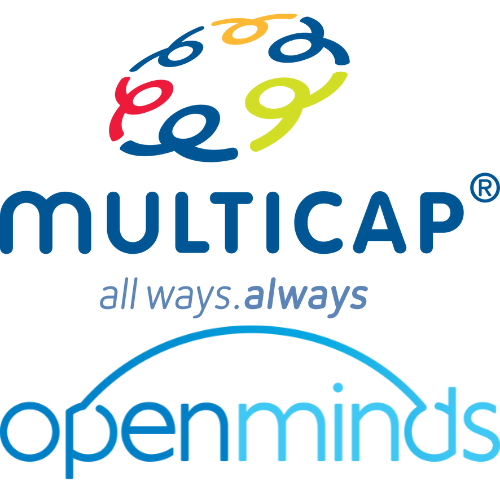
Sunday, 27 July 20259:00 - 10:15 aMHindley 2 |
Ethical Considerations in Addressing Mental Health in Behaviour Support
Claire-Maree Crowe Care Squared Abstract: Addressing mental health concerns within a behaviour support framework requires a nuanced understanding of ethical obligations, particularly when interventions intersect with restrictive practices. This presentation explores a case study a 34-year-old woman with with a neurodegenerative genetic disorder, experiencing, progressive motor, cognitive and psychiatric decline, who presents with verbal and physical aggression, and self-harm behaviours. Using the ABAA and BACB Codes of Ethics, we evaluate the ethical implications of addressing mental health within behaviour support, including issues of autonomy, least restrictive interventions, and informed consent. We critically examine whether specific behaviour support strategies constitute restrictive practices and discuss balancing risk management with person-centred support. The presentation will also outline opportunities to enhance ethical practice, ensuring compliance with NDIS Commission guidelines while supporting mental health outcomes. Target Audience: Behaviour analysts, NDIS behaviour support practitioners, and allied health practitioners working in disability and NDIS sectors. Learning Objectives: At the conclusion of this presentation, participants will be able to:
|
Out of Home Care and Into the Fire: Challenges of Transition of Young Adults Out of Care
Cody Webb1 & Alayna Haberlin1,2
1Tracks Health; 2Paperbark Solutions Abstract: Young people in out-of-home care often experience significant challenges as they transition to adulthood, particularly in developing the necessary skills for independent living. Unlike their peers in stable family environments, these young people frequently lack the gradual easing-in process that supports skill acquisition, problem-solving, and emotional resilience. Once a young person in out-of-home care turns eighteen, full adult responsibilities are thrust upon them, often without the crucial guidance and natural safety nets that facilitate a successful transition. Biological, environmental, and systemic factors contribute to a stunted transition into adulthood. Many young people have not experienced the natural contingencies that typically shape behaviour over time, such as parental praise for effort or peer influence on social norms and can lead to an isolating and overwhelming first experience of adulthood that make impact the trajectory of their lives forever.
Review of data from five case studies will aim is to demonstrate impacts of identifiable environmental influences (such team and home consistency) and (biological factors such as disability and diagnosis) and how the common elements impact success on skill building programs. In engage client feedback and voice, through the use of qualitative assessment, an open-ended interview and self-assessment on their current abilities and skill mastery was completed. The clients also offer their subjective views on the strengths and weaknesses of supports provided in their transition out of out-of-home care. This presentation will explore the barriers young people face, the role of reinforcement in skill development, and interventions that can foster successful transitions. By identifying key challenges and strengths, we aim to highlight evidence-based strategies that empower young people to develop independence, recognize the value of life skills, and achieve long-term stability in adulthood. Target Audience: Behaviour Analyst working with Young People/Adults Learning Objectives: At the conclusion of this presentation, participants will be able to:
|
Risk Assessment to Promote Person-Centred Practice within Multi-Element Behaviour Support
Emma MacArthur, Rebecca L. Beights, & Geoff Potter
Centre for Positive Behaviour Support (CPBS)
Abstract: Multi-element behaviour support (MEBS) provides a person-centred, comprehensive clinical framework focused on improving quality of life and increasing safety. Critical to these behaviour support outcomes, but often missing, is an identification of alternatives and strategies that minimise risk and restrictions on independence and autonomy. The current paper presents a discussion of the Situational Risk Nonaversive Reactive Strategy (NARS) Assessment Matrix and the Situational Risk Restricted Practice (RP) Assessment Matrix (Potter & Spicer, 2024). An overview and rationale for the matrices will be provided, followed by a case illustration of the matrices with a 9 year old male diagnosed with Down Syndrome and Autism Spectrum Disorder, Level 3. The matrices were used to support the participant’s rights and provide evidence to caregivers on the effects of aversive, physical escorts compared to nonaversive, visual supports when giving instructions and during transitions. The impact of the matrices as behaviour analytic assessment tools will be examined, particularly as related to the effects on stakeholder buy-in and reduced restrictive practices. Implications for using a situational risk assessment matrix within MEBS plans for assent-based, constructional behaviour support will be reviewed. Target Audience: Behaviour analysts, behaviour support practitioners Learning Objectives: At the conclusion of this presentation, participants will be able to: BACB CE Instructor: Rebecca L. Beights |




.png)


